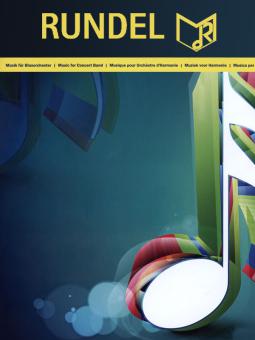Johann Strauss (Sohn)
Persian March op. 289
Johann Strauss (Sohn)
Persian March op. 289
- Compositor Johann Strauss (Sohn)
- Adaptador Stefan Schwalgin
- Editorial Musikverlag Rundel
- Nº de pedido MVSR3450
plazo de entrega 1-3 días laborables
IVA incluido.,
Más gastos de envío
No disponible en todos los países. Leer más
Descripción de la:
In 1864 Johann Strauß (son) (1825-1899) wrote some compositions, which he dedicated to regents of European and Asian countries. Probably the most interesting of these works - his 'Persian March, op. 289' - was written in early summer in Pavlovsk near St. Petersburg. Strauß spent his summers there every year. The new piece of music that was often called 'Persischer Armee-Marsch' was presented to the Russian public at many of Strauß' guest performance concerts that same summer. Returning to his hometown Vienna, the composer presented it to his home audience for the first time the following December.
The Shah of Persia Nāser ad-Din Schāh (1831-1896), to whom it was dedicated, appreciated arts in general and especially the honour of this March dedicated to him. Therefore, he promptly awarded Johann Strauß the 'Persian Order of the Sun'. When the Shah visited the World Exhibition in Vienna years later, the people organising the event found themselves under pressure, because nobody knew with which hymn the Shah should be received. It was darkly remembered that the trio theme from Strauß' Opus 289 had occasionally been called the 'Persian Hymn'. So, the marching military bands played the 'Persian March' - instead of the Persian national anthem. The Shah preserved his imperial dignity and did not let the mistake be noticed ...
There was, however, a grain of truth in that mistake. After all, the melody in question was not invented by the composer. Strauß himself wanted to make sure people knew that he had used an original melody from Persia in the trio. However, nothing is known about the exact origin of this melody.
The Shah of Persia Nāser ad-Din Schāh (1831-1896), to whom it was dedicated, appreciated arts in general and especially the honour of this March dedicated to him. Therefore, he promptly awarded Johann Strauß the 'Persian Order of the Sun'. When the Shah visited the World Exhibition in Vienna years later, the people organising the event found themselves under pressure, because nobody knew with which hymn the Shah should be received. It was darkly remembered that the trio theme from Strauß' Opus 289 had occasionally been called the 'Persian Hymn'. So, the marching military bands played the 'Persian March' - instead of the Persian national anthem. The Shah preserved his imperial dignity and did not let the mistake be noticed ...
There was, however, a grain of truth in that mistake. After all, the melody in question was not invented by the composer. Strauß himself wanted to make sure people knew that he had used an original melody from Persia in the trio. However, nothing is known about the exact origin of this melody.

